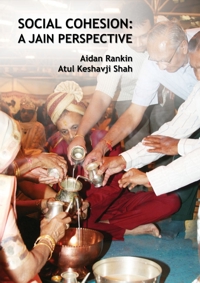It has become fashionable of late to agonise about the rising tide of delinquency. Politicians of all parties vie with each other for votes by demanding tough measures. News media report, at times with seeming glee, the latest outrage. The hoodie, the feral youth, the neighbour from hell, have become modern folk devils. And with good reason, for there is much evidence, both anecdotal and statistical, that crime is spiralling out of control, that many neighbourhoods, especially the poorest, are living in fear. The growth of unrestrained violence is taking place within a culture of low-level anti-social behaviour, symptoms of which include litter, graffiti, noise and the pervasive, seemingly inescapable presence of the ‘f’ word.
What is needed instead is a holistic approach to the problems of crime and anti-social behaviour, in which we neither blame nor absolve, and in which we ask critical questions of ourselves. For there is a sense in which those who are anti-social or criminal hold up a critical mirror to the wider society, taking its values to their logical conclusion. We see this phenomenon at its most dramatic and horrible in attacks on old people and people with disabilities. These two groups are neglected by a society obsessed with illusions of ‘perfection’ and which treats people as marketable commodities. Most young men and women are good citizens and a credit to their families and their country. Those who commit crimes, however, are at once offenders and victims who have been dehumanised by false values.
Our society in its present phase sends out the message that acquiring wealth and spending it quickly are desirable ends in themselves. It chooses to reward footballers, pop stars and supermodels rather than teachers, nurses and social workers. It views relationships exclusively in terms of ‘choices’ and ‘rights’, without balancing them with responsibilities and obligations, still less affection and commitment. It favours continuous change over stability and continuity. In domestic and foreign policy alike, power is equated with aggression and strength with assertiveness. Our economic policies are aggressive and expansionist, as is our attitude towards nature, which is seen as a force to be ‘conquered’ and subdued. Against this background, it is small wonder that anti-social behaviour is spiralling out of control. It is a side-effect of our mania for growth, which is in itself anti-social.
Jain philosophy connects intention with action, small personal acts with collective, even global actions, violent thoughts and speech with violent deeds. From a Jain perspective, spiralling violence overlaps with other forces in our society which are spiralling out of control. As a society, we are engaged in collective self-harm, through being in thrall to false values, of which violent crime, like pollution, is a symptom that affects us all.
It follows that we cannot treat crime and anti-social behaviour as something ‘other’, an external threat. Instead, it is linked to a system of values into which we have slipped unintentionally, and which we must re-examine, as individuals and collectively. Those who advocate ‘more prisons’ or worse still ‘super-prisons’ are badly missing the point. Such policies merely create crime factories and perpetuate the cycle of violence - as shown the appalling example of the American penal system, which we seem for some reason to be imitating in Britain. We would be better to follow the example of the Netherlands, and Denmark, for instance, where prisons are small and rehabilitation takes precedence over punishment. Young offenders’ institutions should be based on therapeutic rather than punitive principles, and introduce nurturing and care rather than further abuse to fractured young lives.
One of the chief causes of prison over-crowding is that prisoners - for example most young men and women, mothers and the mentally ill - are given custodial sentences that harm rather than help them. Alternatives to prison should be fully explored, including restorative justice, through which offenders are forced to confront and make good the consequences of their actions. Access to drug rehabilitation and treatment should be upgraded and extended, with drug policy transferred as far as possible from the criminal to the therapeutic sphere.
Within the custodial setting, the emphasis should move towards the development of the whole person. Education - including basic skills - is a tool to unlock the mind and release potential and should take precedence over punishment. Imprisonment should not just be about confinement, but reconnection with the environment - through gardening, conservation and outdoor activities. It should also be about the cultivation of the inner life, through meditation and reflection.
Far from being ‘soft’, such policies are a radical challenge to the individuals affected and to the wider community. A materialistic and punitive society creates disaffected, violent citizens, ill at ease with themselves and each other. Addressing crime and anti-social behaviour means starting with ourselves, and learning to lead more compassionate, sustainable lives. It also requires a shift of social priorities away from narrow concepts of competition and autonomy towards co-operation and common purpose.
- Promotion of restorative justice;
- Alternatives to prison, where possible, for non-violent offenders;
- Encouraging acts of forgiveness between murderers/ criminals and victim families so that resentment does not turn into anger but creates possibilities of growth - Jains have done this successfully in India;
- Smaller prisons;
- Shift of emphasis from punishment to rehabilitation - every soul has potential to improve;
- Transfer of drug policy from penal to medical sphere and policy centred on the root causes of drug abuse, including social and family breakdowns;
- Encouragement of meditation, yoga and environmental activities in prison;
- Stronger and sensitive community policing;
 Aidan Rankin
Aidan Rankin
 Dr. Atul Keshavji Shah
Dr. Atul Keshavji Shah
